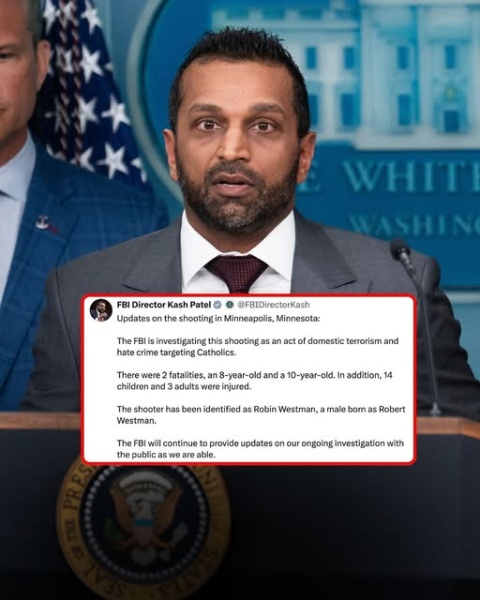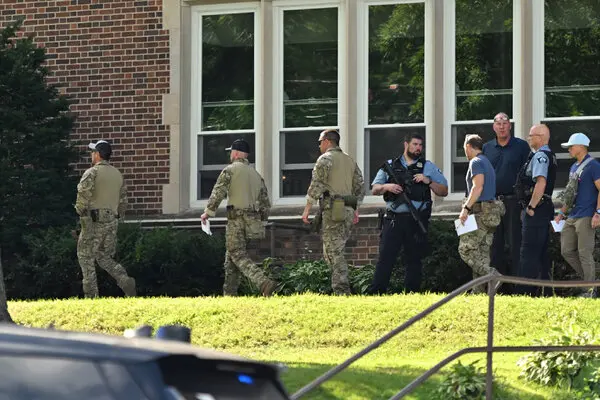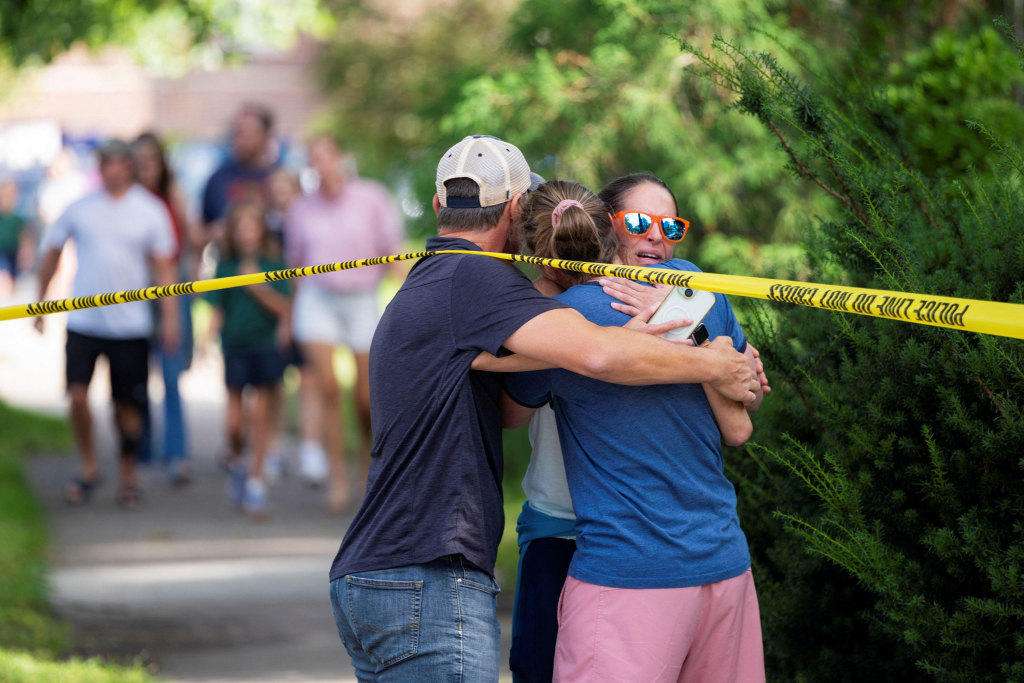On August 27, 2025, Minneapolis faced one of its darkest days when a gunman opened fire at Annunciation Catholic School during morning Mass. The attack left two children dead and at least 17 others injured, most of them students. What should have been a moment of faith and safety turned into chaos and heartbreak. Families, first responders, and the wider community continue to grapple with the devastating aftermath.

FBI Steps In: Kash Patel’s Statement
FBI Director Kash Patel confirmed that the agency is investigating the incident as both domestic terrorism and a hate crime targeting Catholics. This classification underscores the severity of the act and reflects how authorities are viewing the motive behind the attack. By framing the shooting in these terms, the FBI signals that it wasn’t just random violence—it was an intentional act meant to instill fear in a specific religious community.
Video: Minneapolis school shooting being investigated as domestic terrorism, hate crime: FBI
The Suspect’s Identity and Background
Law enforcement identified the suspect as Robin M. Westman, 23, a Minneapolis resident with no prior criminal record. Court documents show Westman was previously known as Robert Paul Westman before a legal name change in 2019. Armed with three legally purchased firearms—a rifle, a pistol, and a shotgun—the suspect entered the school and carried out the attack. Investigators later uncovered disturbing online videos and a manifesto timed to go live during the shooting. These digital traces revealed a troubling glimpse into the suspect’s state of mind.
What Happened During the Attack
The shooting unfolded quickly. Students and staff were inside the church for morning Mass when shots rang out. Witnesses described panic as children and teachers scrambled for cover. Law enforcement rushed to the scene, neutralizing the threat and evacuating survivors. Emergency responders transported victims to local hospitals, where several children remain in critical condition. Despite the quick response, two young children—just eight and ten years old—lost their lives.
Hospitals and Families in Crisis

Hennepin Healthcare reported treating multiple victims, including children in critical condition. Children’s Minnesota Hospital admitted six patients, while others were stabilized and discharged. Out of respect for families, hospitals refrained from sharing identifying details but confirmed that the scale of injuries was severe. Statements from medical centers emphasized compassion and community support, calling the incident “a senseless act of violence that should never happen in a place of worship or learning.”
Community Reactions and Grief
The Minneapolis community responded with heartbreak and solidarity. Parents and parishioners gathered outside the school, some embracing in tears, others holding vigils for the victims. Faith leaders condemned the violence and urged unity in the face of hate. Mayor Jacob Frey joined law enforcement officials at the scene, promising full transparency in the investigation and long-term support for survivors.
National Response and Political Impact
Video: What we know about Minnesota school shooting suspect Robin Westman
The tragedy quickly drew national attention. President Donald Trump expressed condolences and confirmed that federal agencies would support the investigation. By labeling the shooting both a hate crime and terrorism, the FBI has positioned the case within broader national debates about security, extremism, and the protection of religious communities. Leaders across the political spectrum voiced support for victims while demanding accountability and renewed focus on preventing such tragedies.
The Larger Implications
Beyond the immediate heartbreak, this case raises deeper questions. How did someone with no criminal record acquire multiple firearms legally and plan such a coordinated attack? What role did online radicalization or extremist rhetoric play? And how should communities protect schools and places of worship without sacrificing their openness and trust? These are the questions that Minneapolis—and the country—must confront in the weeks ahead.
Moving Forward After Tragedy

While investigators search for answers, the community is left to pick up the pieces. Counselors and trauma specialists are working with children who witnessed the violence. Churches across the city are offering spaces for prayer and healing. For the families of the two children who lost their lives, no explanation will be enough, but collective support may provide some comfort.
Conclusion: A Call for Healing and Accountability
The Minneapolis Catholic school shooting is not just another tragic headline—it is a wound that cuts deep into the heart of a community. The FBI’s decision to classify the case as domestic terrorism and a hate crime highlights its seriousness and acknowledges the fear it has spread among Catholics nationwide. As the investigation unfolds, one truth remains clear: the victims deserve justice, the families deserve compassion, and society must confront the hard questions this tragedy has laid bare


